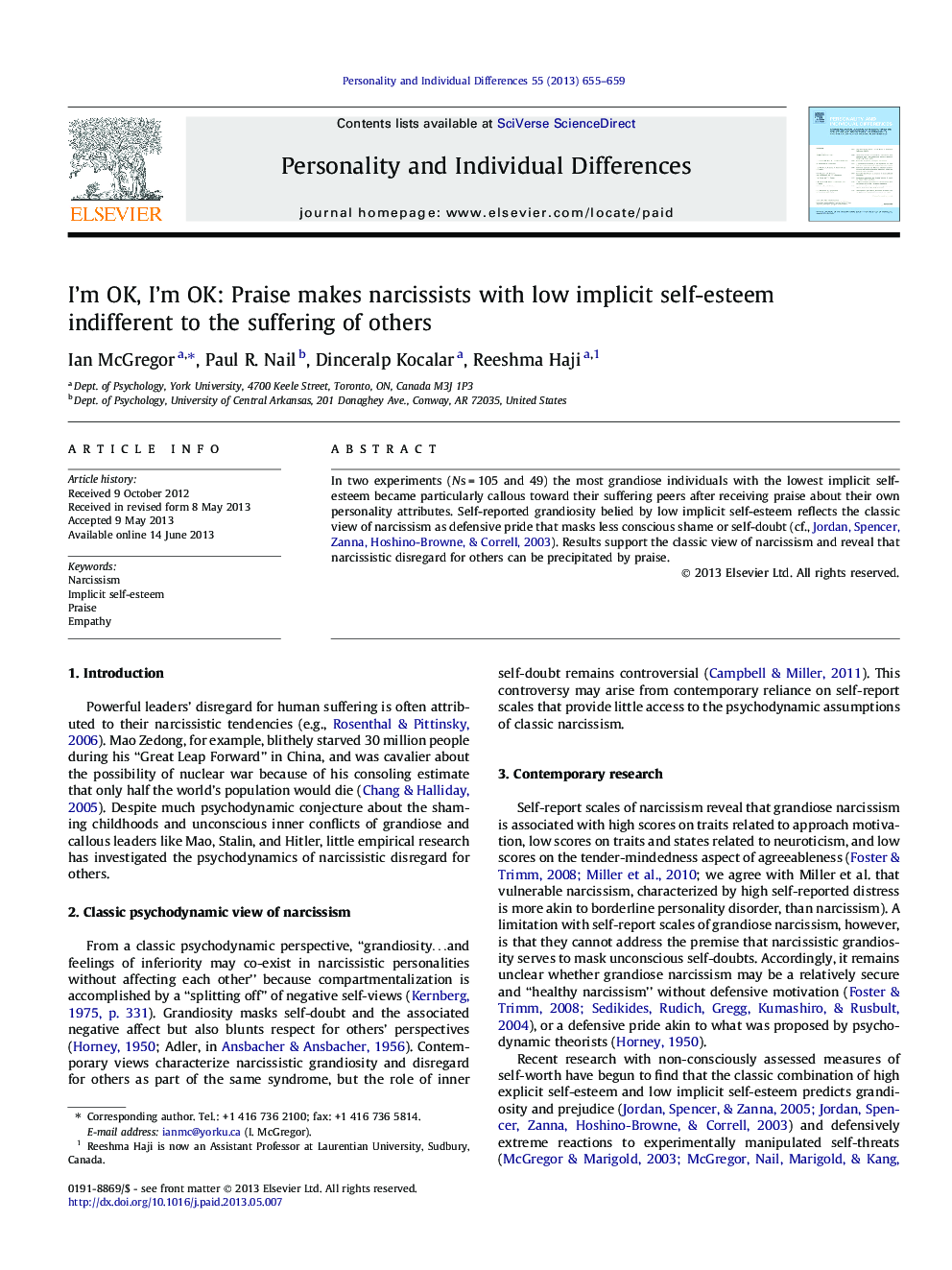| Article ID | Journal | Published Year | Pages | File Type |
|---|---|---|---|---|
| 890830 | Personality and Individual Differences | 2013 | 5 Pages |
•We operationalized classic narcissism as the combination of high narcissism scores and low implicit self-esteem.•Personality praise made classic narcissists particularly callous toward others’ suffering.•Results were specific to narcissism (i.e., did not occur with explicit self-esteem) and were not mediated by mood.
In two experiments (Ns = 105 and 49) the most grandiose individuals with the lowest implicit self-esteem became particularly callous toward their suffering peers after receiving praise about their own personality attributes. Self-reported grandiosity belied by low implicit self-esteem reflects the classic view of narcissism as defensive pride that masks less conscious shame or self-doubt (cf., Jordan, Spencer, Zanna, Hoshino-Browne, & Correll, 2003). Results support the classic view of narcissism and reveal that narcissistic disregard for others can be precipitated by praise.
